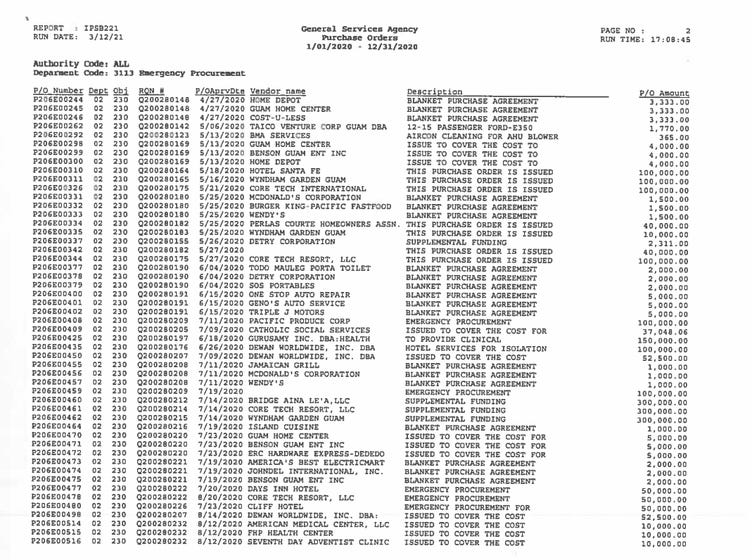Contracts, Data and Investigations: Edition 2021-03-19
This week: PEP deals by middlemen and brokers in Germany and the UK, vaccine procurement in North Macedonia, a PDF of COVID-19 spending in Guam
This newsletter gathers stories covering the use and abuse of government contracts during the COVID-19 pandemic and beyond. Share your stories and investigations with us. We’d love to read and feature them. And we’d appreciate a like if you enjoyed the read.
An investigation by Augsburger Allgemeine and ARD’s report München provides more details on the scheme behind the brokering of mask deals by a network of German parliamentarians that channeled fees and payments through shell companies in Liechtenstein and the Caribbean. Many belong to Bavarian’s conservative party and a coalition partner of the governing party. Holger Sabinsky-Wolf, Michael Stifter, Bernard Junginger, and Stefan Lange share how they investigated (Video in German). The affairs have raised calls for increasing transparency of politicians' side-hustles.
Middlemen and women are profiting elsewhere too. In the UK, the owner of a dog food firm and former investment banker, set up a firm at the beginning of the pandemic to supply Covid-related products making at least £1m in brokering two deals worth £258m, between a Hong Kong firm and the UK government, the BBC reports.
While the pandemic is far from over, little of the current procurement needs should come as a surprise and merit emergency procedures. However, Germany’s emergency procurement regulations continue to enable unscrutinized direct awards. One company’s sole-sourced deal to coordinate the running of rapid tests in Berlin is being criticized by competitors left out, Sebastian Schöbel reports for RBB.
As public schools in the US prepare for the return, they are upgrading classrooms with air purifiers to keep kids safe. For example, Maryland’s Carroll County spent $1.4 million on 1,650 air purifiers and filters and $456,812 on air filtration systems. In addition, $755,032 was spent on personal protective equipment and $127,278 was spent on plexiglas barriers and signage, the Baltimore Sun’s Kristen Griffith reports.
In Guam, lawmakers and auditors will have to sieve 27 pages of sole-source purchases related to the pandemic, including millions of services such as hotel and rental cars, as well as blanket purchase agreements for food chains such as McDonald’s, writes Sabrina Salas Matanane for Kuam News. Check out the PDF with all the information here.
In North Macedonia a vaccine deal for 200,000 jabs of China’s Sinopharm fell through after an intermediary company was used to handle the payments, Sinisa Jakov Marusic reports for Balkan Insights following an investigation by Italian newspaper La Verità.
Namibia and Moldova are running an open competition to purchase COVID-19 vaccines beyond allocated doses through the COVAX facility. Moldova’s procurement process can be tracked here (the process is in the clarifications phase) and Namibia’s tender documents are available here (closing 19 March). We will update you on the process.
Who can and who can’t get a vaccine right now. This visual story by The New York Times’ Allison McCann and Lazaro Gamio visualizes the global inequality to access vaccines effectively.
For our recommendations, resources and tools, check our COVID-19 resource page. Our friends at the GIJN have pulled together some tips and tricks for investigating public procurement. This newsletter has been put together by the Open Contracting Partnership. Comments? Suggestions? Got a story you’ve written to share? Write to Georg at gneumann@open-contracting.org. Thanks for reading.
Did a friend forward you this email? Click here to subscribe


